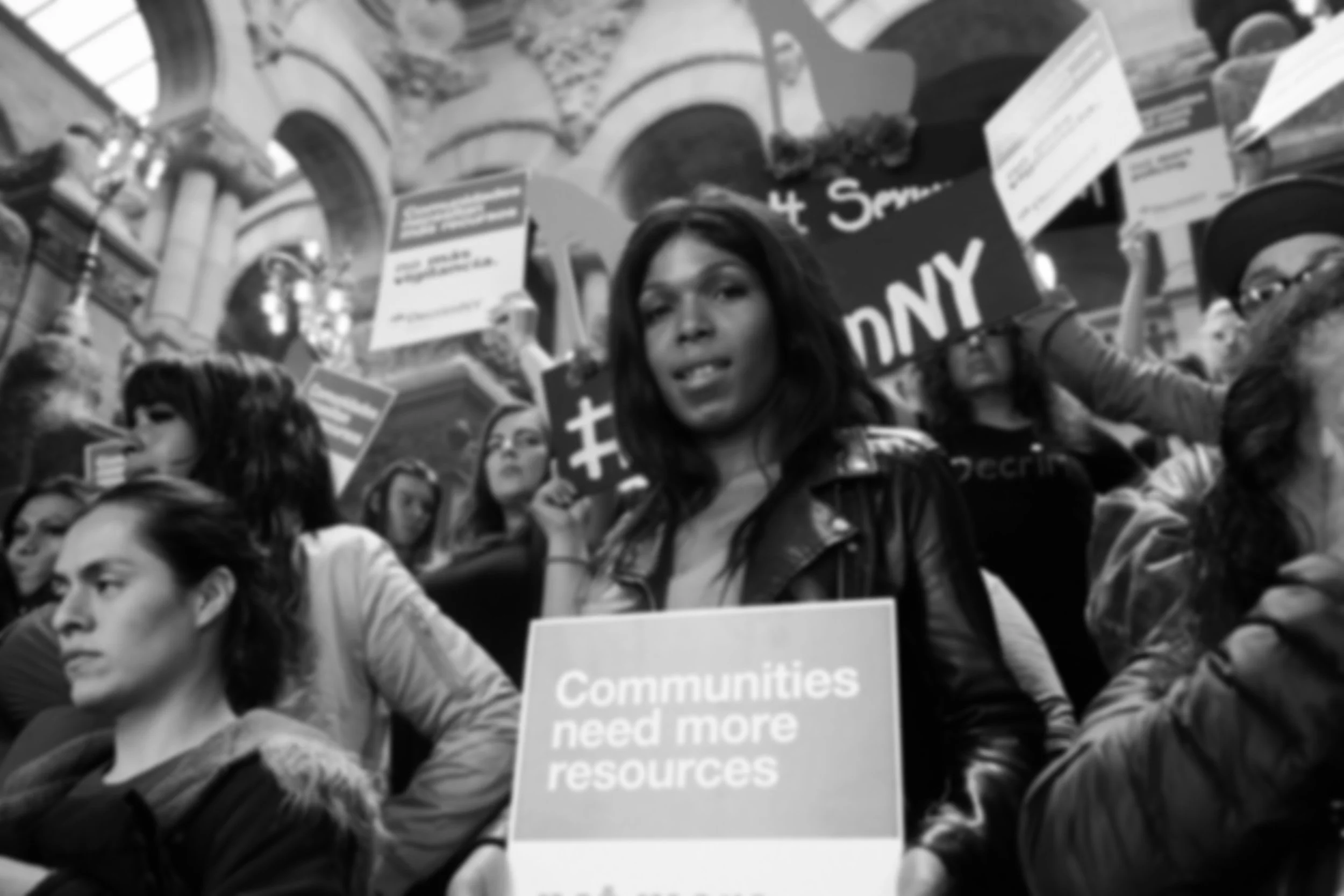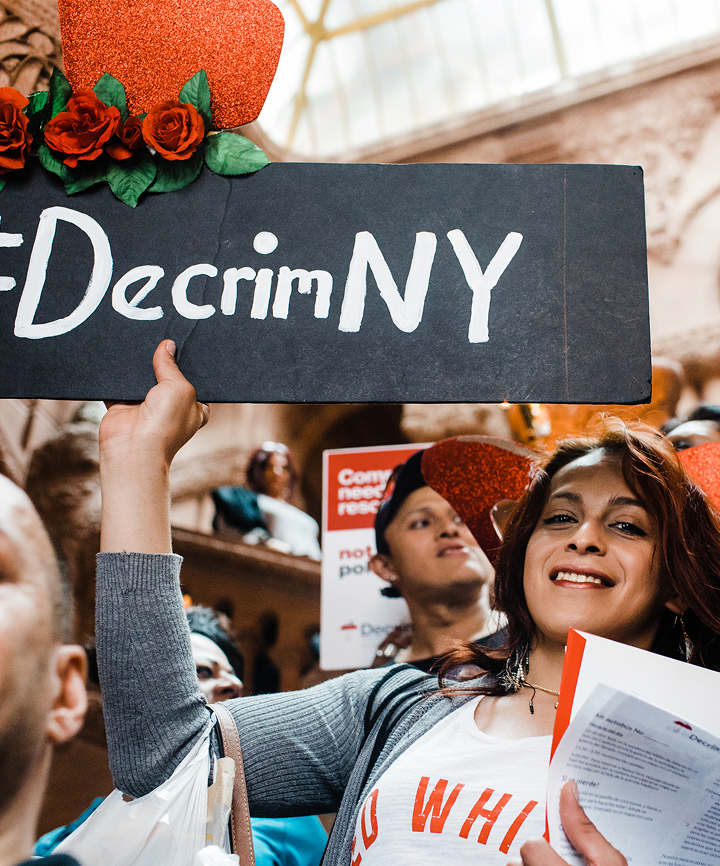
We’re envisioning a world where New Yorkers have the right to safer working conditions, protection from police violence, and sexual autonomy.
DecrimNY is a coalition of sex workers and allied individuals and organizations fighting to decriminalize, destigmatize, and decarcerate sex work in the state of New York.
Help us decriminalize sex work in New York state.
End legislative discrimination against sex workers
Intervene during targeted attacks on marginalized groups
Uplift sex workers to define their narratives
FAQ
-
In the United States, sex work is illegal in almost every state, forcing those who partake in the sex industry to live in constant fear of housing insecurity, banking discrimination, social stigma, loss of child custody, arrest, and even deportation. In the most simple definition, decriminalizing sex work means that consenting adults who buy or sell sex are not committing a crime. Decriminalizing sex work would not change laws against trafficking, gender-based violence, sexual assault, and sex work involving minors. Many organizations, such as the World Health Organization, Amnesty International, and the Human Rights Watch agree that decriminalizing sex work is an evidence-based harm reduction approach that ensures that people involved in the sex trades, whether willingly or through coercion, have more avenues of redress for harm when they aren’t under threat of arrest.
-
Amnesty International, Human Rights Watch, UNAIDS, the Global Alliance Against Traffic in Women, the UN Special Rapporteur on the Right to Health, the World Health Organization, and many other human rights groups support the full decriminalization of consensual sex work in order to address human trafficking worldwide. Workers are more likely to report instances of violence and trafficking when they can be certain they won’t be arrested or deported for performing sexual labor. Fully decriminalizing sex work also eliminates the ability of traffickers to leverage legal consequences against survivors of trafficking, keeping them trapped in cycles of exploitation and coercion. It would also allow for a better allocation of resources away from carceral solutions (like police and law enforcement) and an investment in organizations and resources to help people exit the sex trades. Wherever sex workers may lie on the spectrum of choice, circumstance, or coercion, they deserve autonomy and to live without fear of violence or retribution for speaking out against human rights violations.
-
Legalization of sex work would create a set of laws, codes, and regulations specific to the sex industry (think about the legalization of marijuana, for example). People who buy or sell sex outside of these rules would be breaking the law and subject to arrest, conviction, deportation, or other threats that stem from criminalization. In the framework of legalization, the most marginalized would still suffer as many would not be able to conform to government mandated regulations. Decriminalization does not require specific and limiting guidelines to participate in the sex trades, which ensures workers can work without fear of arrest
-
The Entrapment Model, also known as the End Demand Model, Nordic Model, or Equality Model, refers to the theory that criminalizing clients and third parties (e.g., managers) will reduce demand in the sex trade, thereby “freeing” sex workers, who are often seen — but rarely treated — as victims. This framework has vocal proponents and bills proposing it have been introduced in a few states, but we must make laws based on evidence and fact instead of ideology. Unambiguous data shows a clear correlation between laws that criminalize clients and an increase in violence, sexually transmitted infections (STIs), and exploitation within the sex trades. Criminalizing any part of the sex industry makes it more dangerous for sex workers; when under threat of arrest and surveillance, clients are less likely to provide valuable screening information and force workers to meet them in more secluded locations, which increases threats of violence towards workers. Additionally, many of the clients who are arrested through this model are often men of color, who already face a much higher risk of violence at the hands of law enforcement and through the criminal justice system. Decriminalization is the only means of reducing violence, illness, and exploitation, while avoiding carceral solutions to a systemic issue.


